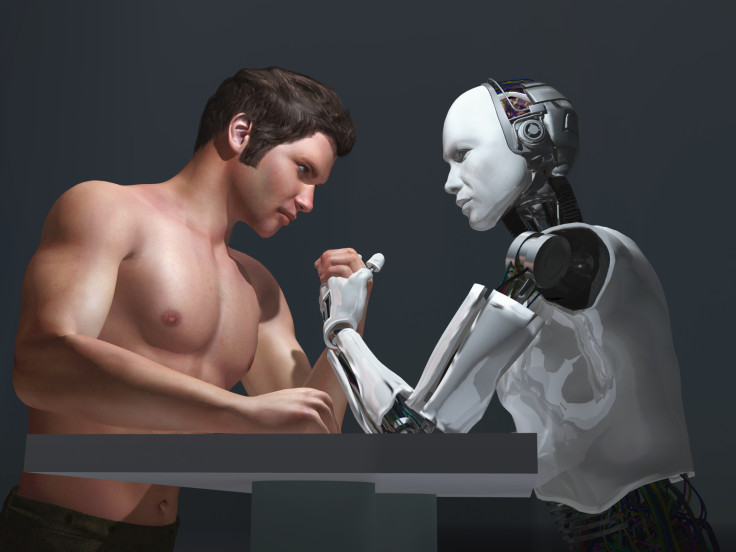Will robots take your job? Bad news for finance and admin, good news for STEM professions

Are you worried about robots replacing you in the workplace? Data from the University of Oxford shows that both white collar and blue collar jobs that require greater routine are most likely to become almost fully automated, while jobs where creative solutions are needed are less at risk.
Dr Carl Benedikt Frey and Michael Osborne of the Oxford Martin School at Oxford University have been researching the impact of robotics on employment for several years, and their latest report Technology at Work: The Future of Innovation and Employment shows that big data and the Internet of Things (IoT) could have huge consequences on even white collar skilled labour jobs.
Their report builds on earlier research from 2013, where Frey and Osborne analysed 702 professions to see whether the job required creative intelligence, social intelligence or perception and physical manipulation in order to complete it.
The researchers analysed whether individuals had to negotiate with or persuade other parties, whether personal customer service was required, whether original or clever solutions were needed, and whether the data being processed could be taken on by a computer instead.
Jobs least likely to be automated
Will robots take your job?
0% − Least likely to be automated
100% − Most likely to be automated
(Data from Oxford Martin School, processed by NPR.org)
0.3% − Occupational therapists
0.4% − Surgeons and physicians
04% − Choreographers
1.7% − Aerospace engineer
2.1% − Fashion designer
3.5% − Lawyer
3.8% − Vetinarian
9.8% − Police and border patrol
11.4% − Reporters and correspondents
12.7% − Dancers
14.8% − Electricians
17.4% − Middle school teacher
37.4% − Actors
54.6% − Commercial pilots
64.6% −Machinists
76.8% − Bartender
88.8% − Bus driver
93.7% −Waiters and waitresses
94.7% − Debt collectors
97.6% − Bookkeepers
97.6% − Legal secretaries
98.3% − Umpires and referees
98.3% − Bank tellers
The jobs that are least likely to be automated include jobs in the science, technology, engineering and mathematics (STEM) industries, such as engineers, scientists, astronomers, architects, surgeons, psychologists, dentists, chiropractors, opticians, electricians and dietitians.
Jobs where a greater amount of personal care and in-depth attention are required were also very unlikely to be automated, such as therapists, teachers, personal trainers, choreographers, air traffic controllers, archaeologists, fashion and set designers, the clergy, lawyers, vets, the police, dancers, journalists, firefighters, tour guides, public relation specialists and most computer-related professions.
Jobs most likely to be automated
In contrast, jobs that required a lot of data to be processed or a great deal of routine in repeating the same task over and over again were very likely to be automated, such as bank tellers, loan officers, administrators, insurance underwriters in the finance industry, as well as retail roles like cashiers, retail assistants, telemarketers, sales executives and waitressing.
Also most at risk of automation are most repairman jobs, and most types of clerks that handle administration, whether the clerk be working in a hotel, a brokerage, an office, the mailroom, handling payroll or managing files.
"So far the digital age has not created very many new jobs. According to our estimates only 0.5% of the US workforce is employed in industries that did not exist at the turn of the century," said Frey.
"Digital companies need very little capital to get started and not much labour to grow their financial value. For example, WhatsApp had just 55 employees when it was acquired for $19bn (£12.4m, €17.2m).
"While new technologies create new occupations, they are higher skilled jobs and are not created at scale."
If you'd like to look up your profession out of the 702 most common jobs today, NPR has a fun interactive guide, complete with graphics showing men slowly morphing into cyborgs.
© Copyright IBTimes 2025. All rights reserved.






















